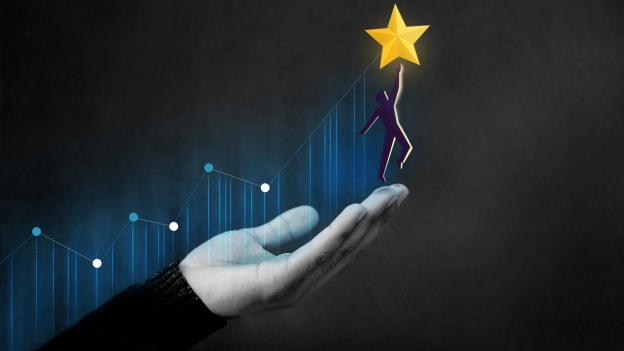Reinventing R&R for new-age employers

The world of Banking, Financial Services & Insurance (BFSI) continues to shift at a rapid speed today. With technology expanding the horizons of operational competency and overall capability of organizations, dynamics of workplace productivity, employee expectations and future course of talent management are also witnessing transformation at a macro level. In an era where artificial intelligence, automation and machine learning are fast transforming manual operations, it is critical for organizations and new-age employers to focus on promising a sustainable future to employees by moving away from role structures and onto people strategies.
By keeping a growth mindset at the heart of all decisions, organizations can step into the future of work strategically, but in order to stay ahead, companies must redesign their reward and recognition (R&R) metrics to unlock future value. In addition to having a direct correlation with employee engagement, reward and recognition also affects various parameters in an organization. From retention to increasing productivity, attracting new talent to business performance, the right strategy and form of appreciation improves employee experience and in turn positively impacts the business success.
Recruiters of tomorrow need to invest resources into curating meaningful work experiences. After all, it is human effort that is the greatest factor in the success of any organization. So, what must companies do to stay ahead of the curve?
Understanding the difference between rewards & recognition
As per a 2019 Deloitte report on Global Human Capital Trends, rewards mean more than money for employees. The report highlights that employees today are on the lookout for more personalized rewards that are aligned to their needs, yet most organizations continue to grapple when it comes to understanding employee requirements on this front and haven’t quite figured out the value they can provide to them. Distinct from rewards, recognition is vital in invoking a sense of belonging in employees.
While rewards and recognition are both alike in a way that they are a show of admiration for a person’s feat, the latter is different as it acknowledges an individual’s dedication, loyalty, hard work and efforts, whether or not it resulted in success. Companies today are increasingly embracing this difference and unlocking the value that lies in making an employee feel worthy of appreciation. For instance, there are various digital employee apps in the financial services industry today that are enabling instant gratification. Town halls & webcasts today have sections where leaders recognize exceptional performers and share inspiring stories of employees going beyond their roles & expectations. Furthermore, behavioral workshops for supervisors have elements of how to be authentic and warm while giving recognitions to strengthen their emotional bond.
Personalizing rewards & recognition
On the back of a digital, data led economy, it is the millennials who are expected to drive exponential business growth and steer disruption across sectors. The workforce of future, as they’re known, is a dynamic, inquisitive, intellectually and culturally diverse lot and keeping them anchored in a place for very long has proven to be a challenge. Moreover, as remote working and virtual teaming are fast gaining popularity, differentiated rewards and recognitions are more important than ever to foster a sense of belonging for new-age employees who want to feel a connection to their work and their organizations. Organizations are relooking at reward and recognition strategies to deliver an experience which is more aligned with individual preferences. Moving away from traditional offerings, customization of incentives and recognition in terms of flexibility and personal or career development strengthens the connect between employees and their respective employers, making them cherish the association further.
For instance, HR automation tools for employee recognition today have become commonplace. To create a memorable reward and recognition program, one can use these widely available tools that offer employees the freedom to choose from a catalogue of extensive experiences and gift cards, making sure employees enjoy the choice and liberty. Similarly, a lot of employers, especially in the insurance industry are employing multiple AI-based solutions to engage with the distributed workforce real-time, giving them real time feedback on key life cycle processes and “moments of truth”. Employees have distinct requirements; while some may prefer longer weekends, others may appreciate higher pay – big data and AI tools help in curating various performance models to cater to individual wants leading to better results.
Focus on nurturing value-added relationships with employees
In a world where employee expectations are constantly evolving, high-performing organizations must push the envelope beyond the industry benchmarks for addressal of compensation and benefits. They should be more focused on building positive, long-term relationships with workers, with the intention to understand what the employees need and value.
To nurture a sense of inclusion and acceptance, realigning rewards and recognitions to create a robust relationship within the organization becomes imperative. While tangible incentives are provided by the majority of organizations, the focus should be on non-professional aspects. New age employers in the sector should attempt to make rewards and recognition simple, productive and such that they let people grow by offering the necessary support and performance motivation achieving an equitable and dynamic future for all. For instance, giving employees an opportunity to showcase their talents, hobbies and creative sides or holding emotional and physical wellbeing workshops encourage employees in the long run.
Going forward, companies will also need to evaluate their pay and rewards systems in the context of larger societal and generational expectations and make adjustments such that their rewards and recognition can then drive desired outcomes.















